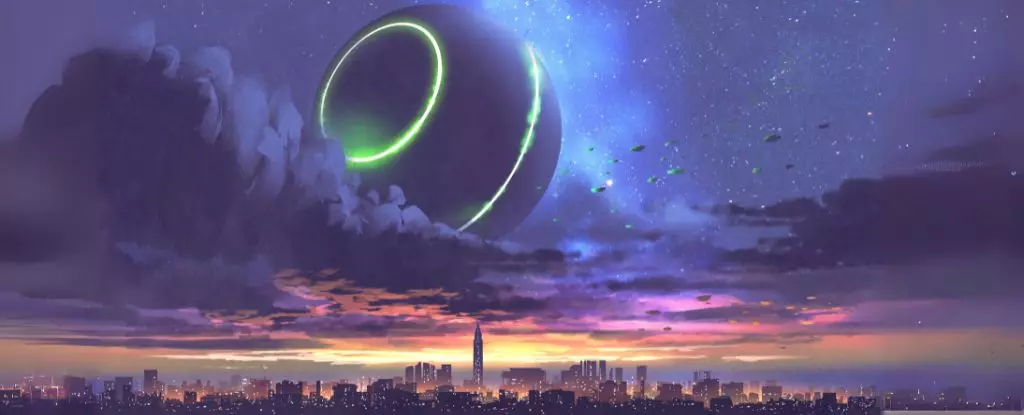It is easy to dismiss our fears regarding catastrophic events from space as mere sensationalism. Nonetheless, the recent discovery of asteroid 2024 YR4, posed as a potential “city killer,” has reignited Twitter-infused anxiety about existential threats from above. While the probability of this celestial body colliding with Earth stands at a lowly 0.001 percent, the collective gasp that accompanied the initial spike in risk perception — surpassing a 1 percent threshold — illustrates our unnerving tendency to let sensational narratives dictate our emotional responses. After all, even a tiny risk can loom much larger in a world filled with immediate, palpable anxieties like climate change and geopolitical tensions.
This dichotomy between perceived cosmic threats and grounded Earthly crises poses an interesting question: why do we fixate so intensely on potential disasters from outer space while concurrently confronting daunting challenges on our planet?
Shadows of the Past: The Dinosaur Syndrome
A nagging voice in humanity’s psyche whispers warnings of disastrous events — a somber legacy inherited from the universe seemingly indifferent to our existence. After all, the extinction of the dinosaurs stands as a stark reminder of cosmic power, leaving a print on human consciousness that can never be erased.
Daniel Deudney, a political scientist, raises an alarm over our cavalier approach to planetary defense mechanisms, highlighting a dual-edged sword: technologies designed for protection can also become instruments of destruction. The potent paradox of our quest for cosmic knowledge is our willingness to weaponize it. Deudney’s insights compel us to carefully consider the ethical implications of advancing space exploration without delineation. In our rush toward the stars, are we inadvertently signing our own death sentence?
Cosmos vs. Characters: The Evolution of our Space Narrative
Fear of what lies beyond is timeless. The tableau of our collective mythology, historical narratives, and modern-day science fiction critiques, encapsulates cosmic anxieties. The Sami tale of the Cosmic Hunt, which warns of consequences if impatience guides our actions, serves as an emblematic motif. In this narrative, the hunter, representing humanity, risks not only failure but the collapse of the very sky under which they live.
In our contemporary dialogues, this anxiety has morphed into myriad forms — from UFO conspiracies to dystopian imaginings of hostile extraterrestrial civilizations. Cixin Liu, a visionary of modern science fiction, eloquently articulates this fear through the metaphor of a “dark forest,” where alien races conceal themselves in dread of a predatory universe. Such tales resonate deeply with us, as they echo our imperfect understanding of human destructiveness. We’ve layered this perception with anxious theories that malign our advancements in technology, creating a fertile ground for both fascination and paranoia.
Translating Fears: Viruses, Conspiracies, and Cosmic Theories
Adding another layer of complexity to the narrative of cosmic anxiety, the intersection of space theories and contemporary crises like the COVID-19 pandemic has incited fervent discussions about the origins of life and disease. Scientific musings, such as those proposed by Fred Hoyle, suggest that viruses may have cosmic origins, feeding into widespread sentiments of fear and mistrust. The murky waters of conspiracy narratives can obscure scientific rigor, leading individuals to engage in conspiratorial thinking rooted in anxiety rather than empirical evidence.
From governmental accountability to corporate avarice, our fear of the unknown has often tutored public discourse toward skepticism, spotlighting the vulnerabilities of those in power. Wealthy drivers of innovation in the space industry, often caricatured as modern-day Prometheans, provoke fears about a new breed of colonialism. As aspirations for Martian aspirations soar, the humanitarian quandary unfolds: should we prioritize resources to exit Earth or to solve our earthly challenges first?
The Burden of Ground Bias: Separation or Interconnection?
Our fears regarding space can often be traced back to a profound sense of separateness. The notion that we exist as isolated entities, subject to threats originating from beyond our atmosphere, may imbue us with limiting beliefs about our interconnectedness with the cosmos. This “ground bias” not only narrows our understanding of our role in the universe but can diminish our capacity for critical thinking and constructive action.
Perhaps the real task ahead is to bridge this gap, recognizing that space is not merely a threat but a component of our shared existence. When we view space solely through a lens of fear, we ignore the wisdom garnered from ancient narratives that imply an intrinsic connection between humanity and the cosmos. It is not just a vast emptiness above us; it is also an extension of our lived experiences, fraught with significant ethics yet to be navigated.
In grasping our fears surrounding space, we must acknowledge our responsibility to dissect these anxieties methodically. Instead of slipping into paranoid vacillation, perhaps the pursuit of wisdom lies in acceptance—understanding that cosmic mysteries serve as mirrors reflecting our deepest human struggles and imperfections.


Leave a Reply